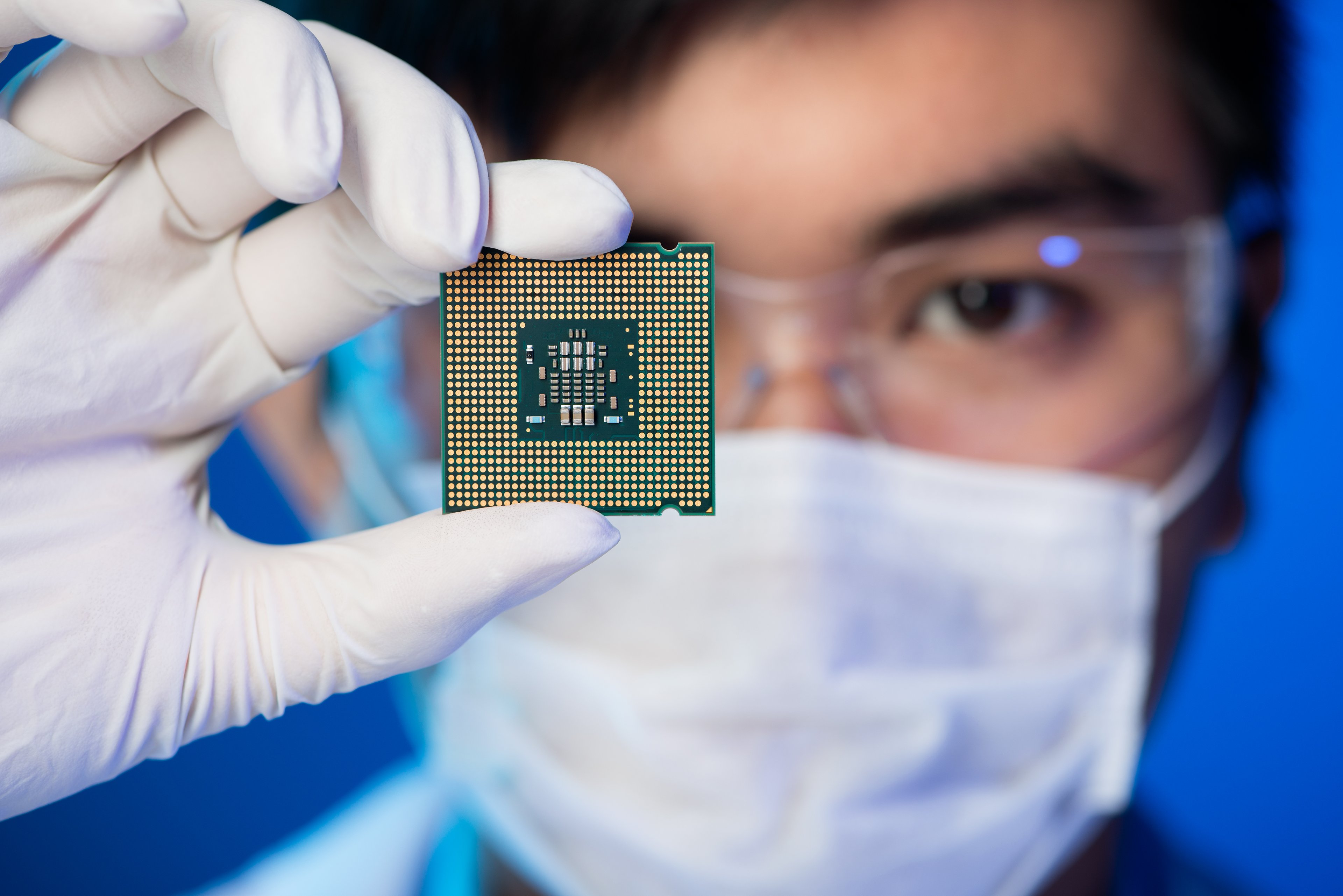Taiwan Semiconductor Manufacturing (TSM +2.21%), or TSMC, the planet's biggest contract chip manufacturer, recently posted results for the first quarter that proved to be a solid indicator of surging customer confidence in the company. While the company recorded a healthy 11.7% year-over-year increase in revenue, net profit rose by a substantial 21% at $1.59 billion to beat analyst estimates by a comfortable margin.
But then, chip manufacturing continues to be a highly competitive business and TSMC faces a number of challenges from industry rivals, the latest being in the form of a tie-up between Globalfoundries and Samsung Electronics, two other dominant market players. Then, there's Intel's (INTC 17.03%) financial muscle and manufacturing ability to contend with. Let's take a closer look at what lies ahead for TSMC.
The secret recipe for success
With the high-end smartphone market witnessing a slowdown in sales, particularly in developed markets around the world, handset manufacturers are constantly focusing on adding newer features -- such as fingerprint and facial recognition -- in an effort to boost sales and stand out from the competition. Such features, however, require more chips to be placed inside phones, something that has prompted TSMC's customers such as Qualcomm (QCOM 1.25%) to place more orders, leading to consistently higher profits for the former.
Increasing demand for smartphones that operate on 3G and the next-generation 4G LTE networks in China comprises another dominant reason for TSMC's present success. Already the world's largest smartphone market in terms of volume sales, China has been hot property for chipmakers such as Qualcomm that wish to take advantage of its recent efforts at network upgradation. Qualcomm's entry-level 4G LTE-enabled chips have met with strong demand from the Chinese market, with the rest being catered to by 3G-enabled chips manufactured by MediaTek, another TSMC customer.
Why the future does matter
TSMC is hardly likely to rest on its laurels, as evidenced by the company's impressive plans for future success that have encouraged it to project double-digit profit guidance for the entire year. The company is already in the process of spending a whopping $27 billion over a span of three years as part of an effort to ramp up capacity and expand its current chip-making technology.
In fact, TSMC's advanced 20-nanometer chip manufacturing capacity has already become operational during the first three months of this year. Given that the company has been the first to introduce this line of chip manufacturing, it looks set to reap the benefits of its first-mover advantage in this area. The 20-nanometer process also allows for more transistors to be packed onto a single chip, making them more power-efficient in the long run and increasing their attractiveness to customers. If industry rumors prove to be correct, Apple's upcoming plans to source chips from TSMC's 20-nanometer production facility should provide a significant boost to the latter's prospects. Complementing the scenario, TSMC has outlined plans to manufacture bigger, 18-inchwide silicon wafers that would enable it to place more chips on a single wafer, leading to higher cost efficiencies and greater profit margins.
The Intel factor
TSMC's future expansion plans also include setting up even more advanced 16- and 10-nanometer manufacturing capacities -- part of its efforts to counter rival Intel's strategy to launch its own 14-nanometer chip-making capacity during the latter half of this year. But, despite having the financial capacity and technical prowess to match up to the best in the industry, Intel's lack of proven expertise in manufacturing LTE-enabled chipsets is probably the single biggest factor behind its failure to secure a proper foothold in this industry.
What about the others?
A recent deal struck between Globalfoundries and Samsung to utilize the latter's advanced 14-nanometer FinFET chip production capacity may have dealt a further blow to Intel's aspirations of making it big in the foundry business. However, TSMC also needs to keep a close watch on the progress of the deal that has the potential to erode its dominant market share. A particular point of concern seems to be the creation of an alternative source of supply for some of its biggest customers, such as Qualcomm, that incidentally encountered chip supply shortage issues with TSMC back in 2012.
Some Foolish final thoughts
TSMC shares have gone up approximately 15% since January -- proof of surging investor confidence in the company that seems well-justified. After all, this is a company that still has around 50% share of the staggering $38.9 billion global chip-making market.
While China's LTE network upgrade efforts will continue to drive growth for the company throughout the rest of this year, TSMC's huge investments in technology are also likely to pay off and ensure even higher profit margins in upcoming years. This stock truly deserves to occupy a good part of your tech portfolio. If you still haven't made a move in this direction, you're probably missing out on a big opportunity to benefit from the current action in the smartphone processor industry.





